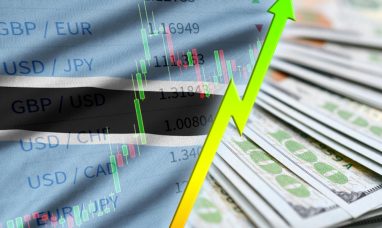T-Mobile US (NASDAQ:TMUS) has established itself as a standout performer in the American telecom sector, steadily gaining market share against competitors like AT&T (NYSE:T) and Verizon (NYSE:VZ) over the years. Nevertheless, remaining competitive in the wireless and fiber markets demands substantial investment, particularly in a higher-interest rate climate.
As T-Mobile follows the lead of its peers by initiating dividend payouts, concerns are emerging that the telecom giant’s days of rapid growth may be drawing to a close.
T-Mobile’s Inaugural Dividend: A Transformation for the Leading Telecom Player?
The decision by T-Mobile to commence dividend payments in the fourth quarter hasn’t been met with unanimous enthusiasm from investors. Historically, the company has delivered solid returns without the need for dividends.
This dividend payout is part of T-Mobile’s $19 billion shareholder return program, which also includes a $15.25 billion share repurchase plan through 2024. Looking ahead to 2025, T-Mobile anticipates returning approximately $60 billion to its shareholders. However, this doesn’t necessarily signal a departure from its growth-oriented approach.
Undoubtedly, a commitment to dividends and share buybacks comes with an opportunity cost, as it diverts funds away from potential investments in telecom technology. Despite this, the initial market reaction to the shareholder return program appears somewhat exaggerated.
Personally, I favor T-Mobile’s pursuit of share buybacks over dividend payments, especially since the stock has been trading relatively flat for nearly three years. Buybacks can be highly beneficial when a company’s shares are undervalued.
As of the current writing, TMUS is trading at just 26.43 times its trailing price-to-earnings ratio, well below the five-year historical average of 45.4 times. From a historical perspective, T-Mobile’s stock appears to be the most attractively priced it has been in years.
Balancing the return of capital to shareholders with growth initiatives, such as the 5G rollout, can indeed be a challenging task. However, I’m inclined to give T-Mobile’s management the benefit of the doubt as they begin to reward investors who have stuck with a stock that hasn’t delivered significant capital gains in recent years.
Currently, T-Mobile is generating robust cash flow growth as it continues to outpace rivals in the fiercely competitive telecom landscape. Having a healthy cash reserve is never a bad thing, and I believe that buybacks will enhance the value proposition, especially as the market undervalues the telecom leader during these uncertain times.
T-Mobile’s Inaugural Dividend Yield Expected Below 2%
When T-Mobile issues its first dividend, it is unlikely to rival the yields of AT&T or Verizon. T-Mobile’s forthcoming dividend, which amounts to $0.63 per quarter, is projected to yield approximately 1.8% based on Thursday’s closing price of around $140 per share.
This yield still falls significantly short of the passive income offered by its two telecom counterparts. Presently, AT&T boasts an impressive 7.4% yield, while Verizon’s yield is a substantial 8.1%. Nevertheless, after enduring substantial declines over multiple years, a prudent course of action for AT&T and Verizon may involve substantial reductions in their dividend payouts, possibly around 75%.
Although such a drastic dividend cut might not sit well with AT&T and Verizon shareholders, it could be a step forward as they seek to elevate their growth prospects to the next level. Currently, a yield in the range of 1.5% to 2% appears to strike a balance that allows for both shareholder returns and growth investments.
Conclusion
It’s unlikely that T-Mobile will follow the example of its two competitors by implementing a substantial dividend. The company remains firmly focused on growth and is well-positioned to continue outperforming its telecom rivals.
While opinions on the new dividend program may vary, T-Mobile’s planned share buybacks seem promising. The stock’s current undervaluation, coupled with an average analyst price target of $179.88, indicates the potential for more than 27% upside from current levels.
Featured Image: Unsplash















